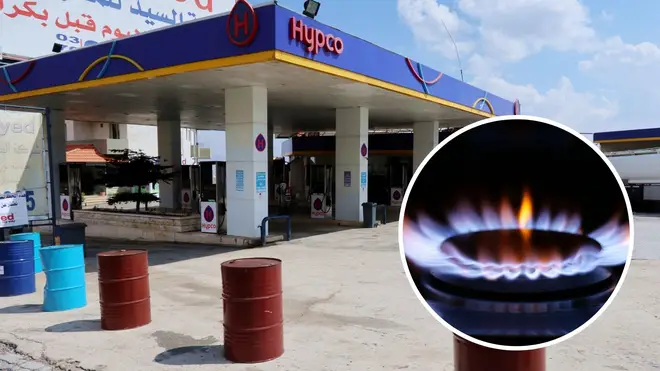
Nick Abbot 10pm - 1am
10 October 2021, 10:02 | Updated: 10 October 2021, 14:56

The energy crisis fuelled by soaring gas prices is causing chaos around the world as Lebanon has run out of power and India has just a few days of coal supply left.
Lebanon was left without any state produced power this weekend as the country's two main power plants were forced to close.
The power plants ran out of fuel on Saturday, causing the entire Lebanese power network to cease operation.
The power outage will continue until at least Monday, but could last much longer according to reports.
Lebanon is grappling with a severe energy crisis made worse by its reliance on fuel imports.
Hospitals and other essential services are in crisis mode attempting to deal with the outages.
Power cuts in Lebanon are common, but blackouts that previously lasted several hours are now set to last for days.
The country is expecting a new shipment of fuel from Iraq next week.
Businesses across the country had already been forced to close early due to electricity shortages, and distributors of gas used for domestic and commercial heating and cooking have now ceased operating, leaving citizens without fuel for their homes.
Read more: Energy crisis: Govt adviser warns there is 'no quick fix' as gas prices spiral

Caller reveals he won't be able to heat house this winter
The government is planning to turn to the military's emergency fuel supplies, but this is not expected for some time.
Fuel stations across the country have also been forced to close.
China has seen widespread power outages in recent days as it struggles with a severe shortage of electricity.
China relies on coal for around 70% of its power but many coal producers are slowing production due to costly penalties incurred for relying on fossil fuels.
As well as affecting millions of residents, power outages in China are resulting in factory production slowing, meaning supply chains around the world could come under pressure as demand for products outstrips supply.
In the run up to Christmas there are fears key factories in China will not be able to operate at full capacity, which could worsen the supply chain crisis already seen in the UK and parts of the EU.
Read more: Empty shelves as supply crisis ‘leaves one in six unable to buy essentials’
Meanwhile, India's coal supplies are running dangerously low and the majority of coal power plants have just a few days worth of stock.
There are fears of blackouts across the country, which generates 70% of its power from coal.
Of its 135 plants, 108 are facing critically low supplies with less than three days worth remaining.
There are reports of electricity outages in northern areas of the country as the crisis is worsened by coal mines suffering flooding.
The price of coal in Indonesia, which supplies India, has almost doubled to $162 this month when compared to April this year.
Read more: Supply chain crisis: Thousands more HGV drivers to be trained - but not before Christmas

Government must protect most vulnerable in cost of living crisis
The US is also facing pressure in its oil supply as prices climbed to more than $80 a barrel this week.
The US Department of Energy told Reuters that all "tools are always on the table" to tackle supply shortages.
This came after speculation that the Biden administration is considering using its strategic petroleum reserves or banning oil exports to reduce the cost and ease domestic demand issues.
Gasoline prices have hit a seven-year high this week and are around $3.20 a barrel.
Read more: Fears of toilet roll shortage as spiralling energy prices could trigger supply crisis
The global crisis comes amidst UK fuel shortages caused by a lack of HGV drivers.
The UK has also seen soaring energy prices caused by rising gas costs and business leaders have warned the government of product shortages as factories face having to cut supply due to the cost of fuel.
Parliamentary Energy Adviser Dom Goggins told LBC’s Iain Dale that the issue was likely to go on until spring and that there is "no quick fix".
The energy price cap for consumers is expected to rise to around £1,600 from the summer, up from £1,200.